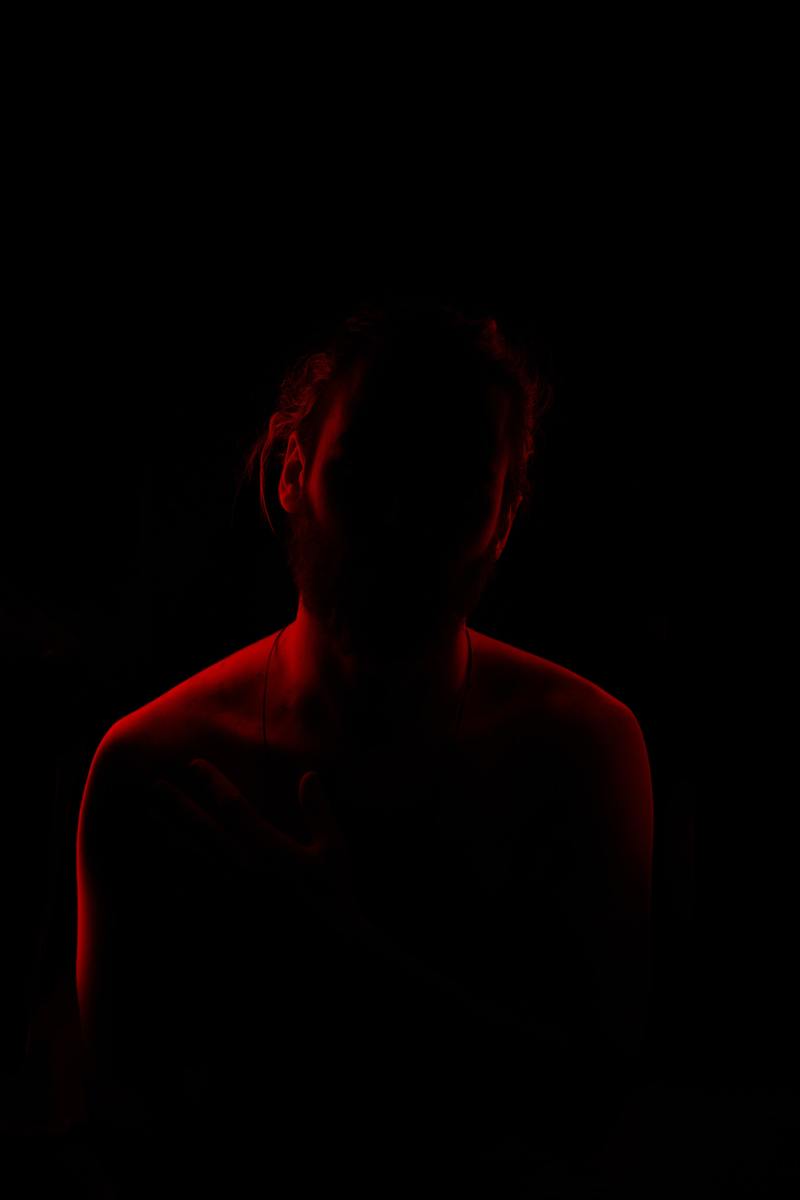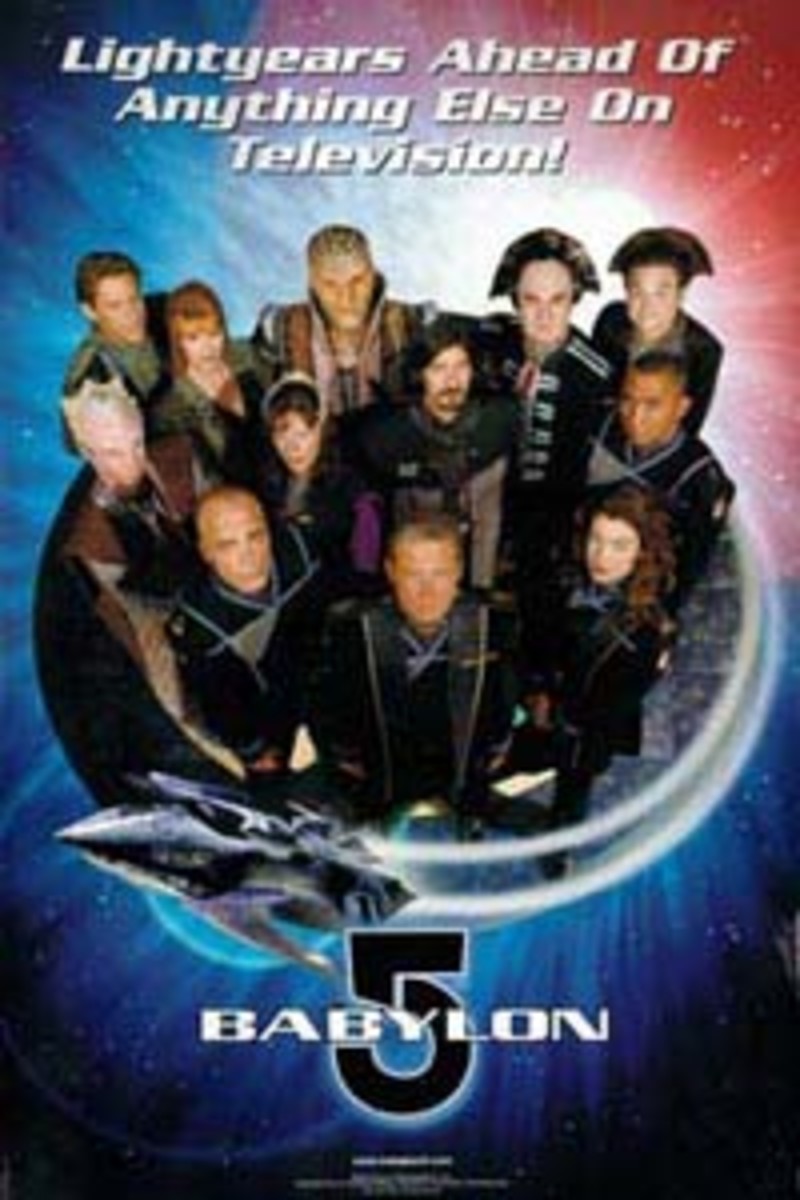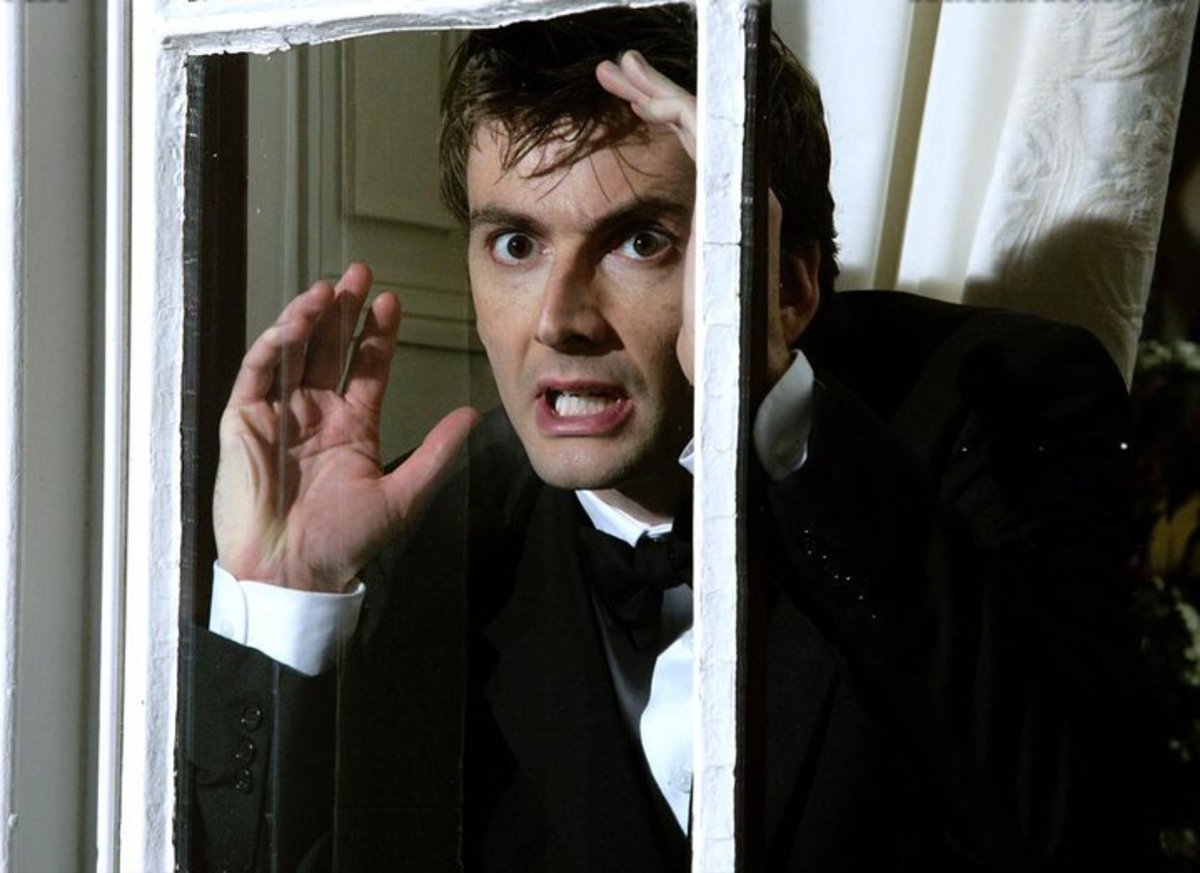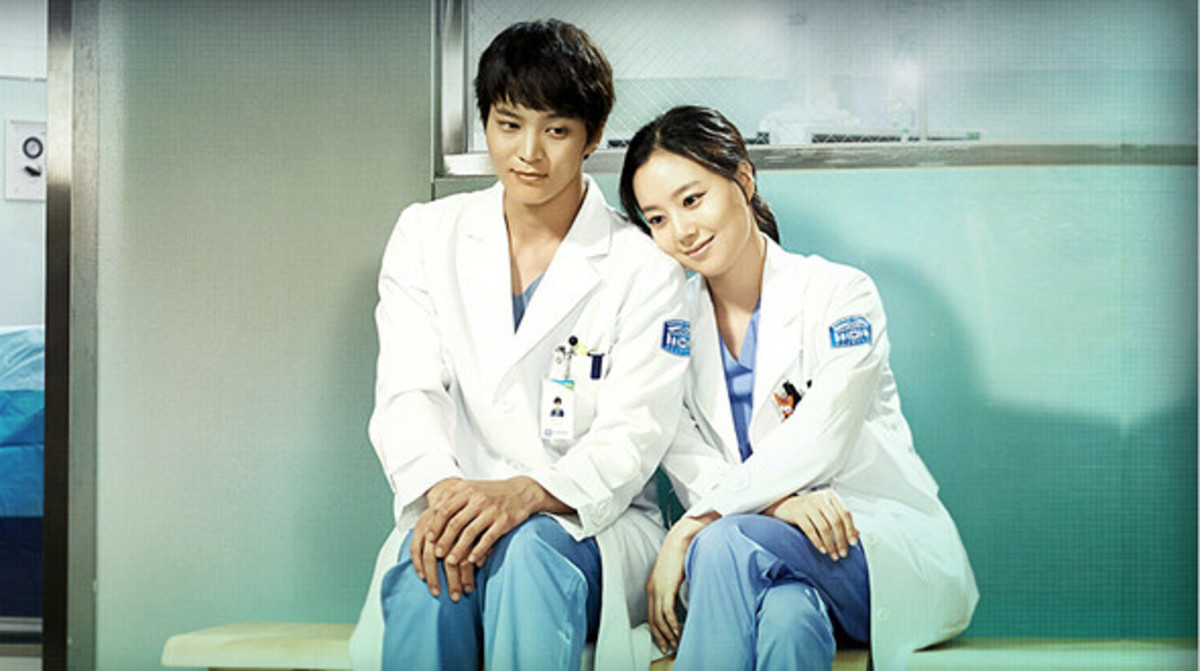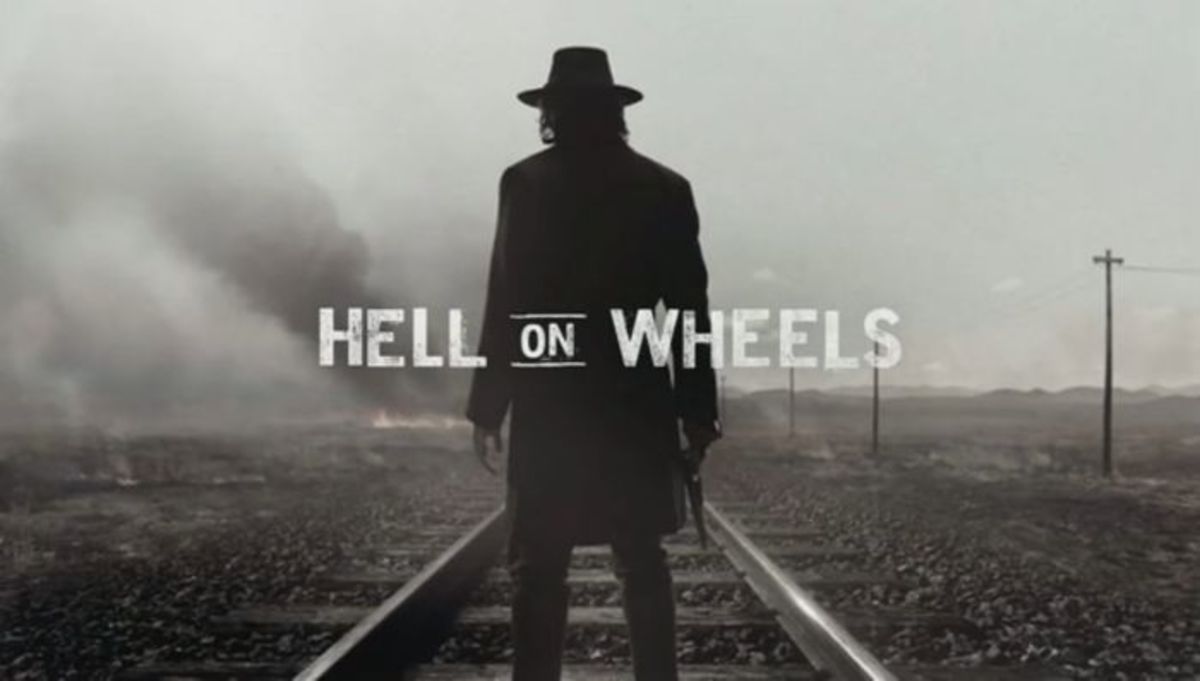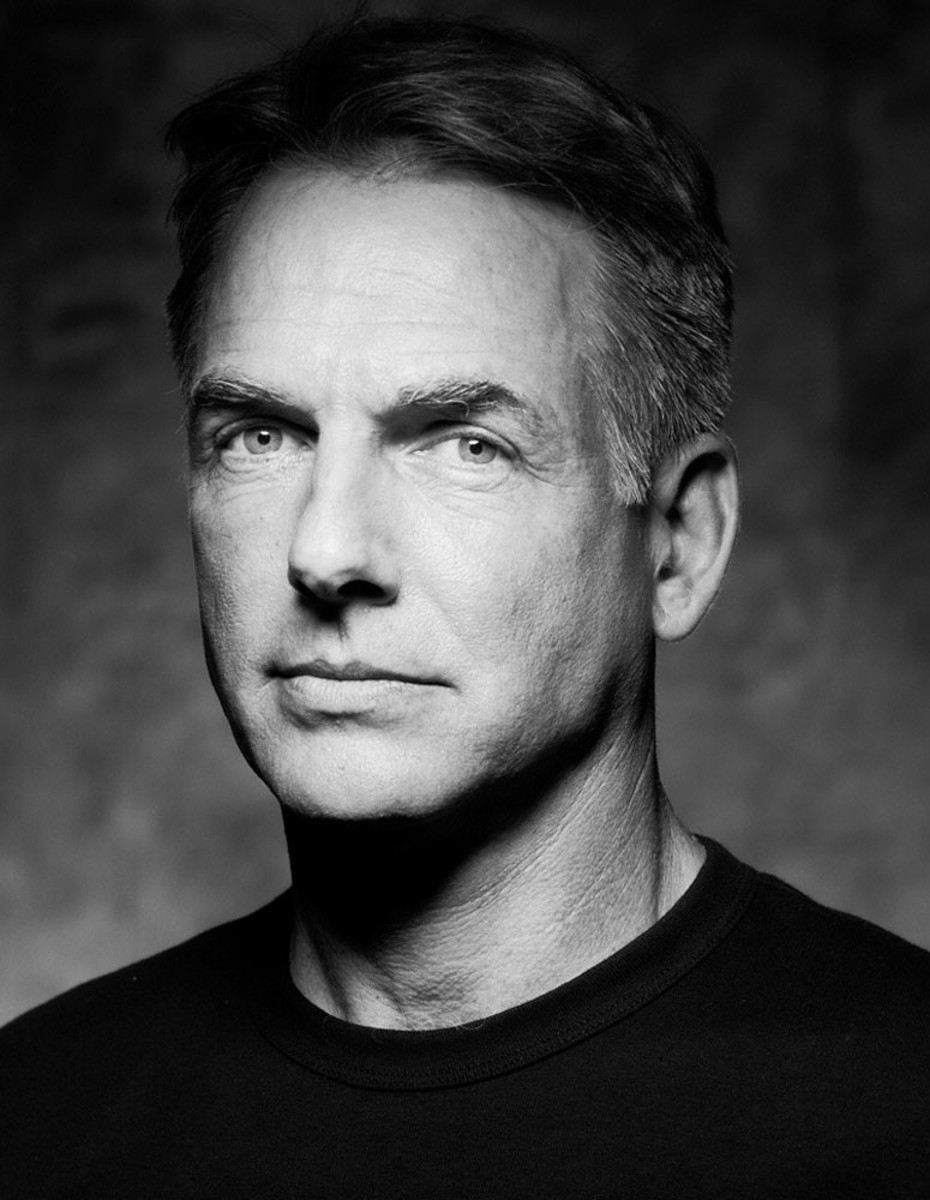Ten Essential First Doctor Moments
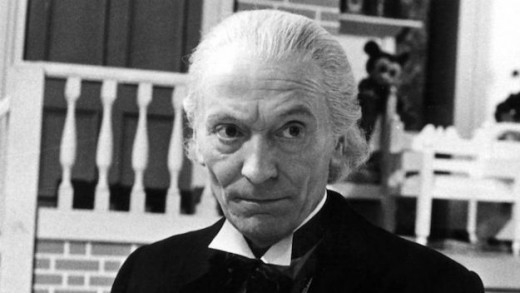
1963. The BBC, wary of the lack of a diverse variety in the broad scope of their programming, elected to resort to the visionary ingenious of the American executive, Sydney Newman, to enlighten the younger demographic of their target niches with an adequately memorable show. He opted to subvert conventional protocols of expectation, with the utilisation of the science fiction genre to provide the catalyst for erudite conveyance, and collaborated with the charismatic and convicted Assistant Producer, Verity Lambert, to inject the proceedings of the creation of what would become a monolithically influential and salient television program.
They were the humble beginnings that subsequently lead to the recruitment of the tenured acting mastermind, William Hartnell, to take a divergent departure from his orthodox typecast roles of militarised figurehead characters to perform as an elderly, but wiry and arcane being from outer space-Resembling a human in his guise, but completely alien in the manner of the conduction of his demeanour. They were precarious and uncertain terms of an agreement, and there was an omnipresent looming sense of ominosity over the paranoia of the sustainability of the voyage of spearheading and persevering ambition, from the moment that Carol Ann Ford, Jacqueline Hill and William Russell were employed to exude the personas of Susan Foreman(the Doctor's young and naive, but incredibly intelligent granddaughter from the same very foreign planet), and two of her teachers from Coal Hill School(of which she was an attendee), Barabara Wright and Ian Chesterton-Who were curiously investigating the peculiarity of her striking presence.
Hartnell was initially apprehensive and sceptical about the adoption of a character that traversed the perplexing, non-linear progression of time in a blue police phone box that was bigger on the inside than the exterior, and functioned as his vessel and his mobile abode. It was preposterously implausible. But he would very soon become not only convinced with the faith that complemented the approach of gusto and flair he invested into the character, but the advocator of a show that was ultimately cultivated as his muse. And within a matter of moments, despite the unfavourable odds of adversity and lack of endorsement from the reluctantly commissioning studio, the crew of the TARDIS eventually burgeoned out onto the broadcasted television scene to nurture Doctor Who into an esteemed pinnacle of exaltation and venerated regard.
It in turn, served to enshrine William Hartnell as a pre-eminently pre-instigative character of eternal whit, wisdom, bravado, and eventual charm; A hallmark template of dependability for his equally dignified, but adoring successors to perpetuate the formula of, take cues from, and expand upon. The following listicle is a beholding bastion of the recollection of the ten most definitive and iconic moments that the First Doctor subtlely ignited the screen and captivatingly arrested the attention of the audience in.
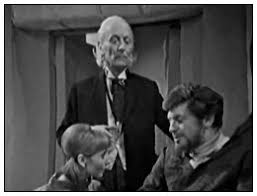
10. No Time For Elaboration(The Time Meddler)
Sometimes, the most defining and emblematic instances of a person's conduction throughout their lives is not the most monumentally explicit or overt in their composure. Sometimes, the subtlely conveyed nuances of one's personality, opinions or beliefs can suffice in portrayed just as effectively as a cognizant and self-aware soliloquy at protracted length-Through a cursory statement or a brief remark made with only half-consciousness of the oratory presentation they are giving. And, when Steven Taylor was struggling to process the inundation of perplexing stimuli he was affronted with when discovering the enormity of the TARDIS in The Time Meddler, the Doctor made an efficient remedy to quell his vulnerable curiosity with haste.
"That is the dematerializing control, and that, over yonder, is the horizontal hold. Up there is the scanner; those are the doors; that is a chair with a panda on it. Sheer poetry, dear boy! Now please stop bothering me."-Was the summarising statement that was encapsulating and all-encompassingly encapsulating indicative of the very pompous impatient and purposeful manner of the First Doctor. Concise, pure, and the quintessential essence of the vintage of the character.
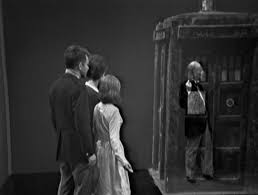
9. Pearls Of Wisdom(The Space Museum)
Likewise with his communication with Steven some time afterwards, the First Doctor had displayed the hallmarks of his precipitous mastermind in an exchange with Ian Chesterton in The Space Museum where, in discussion with the teacher with pertinence to his curiosity over the fascination with the Doctor's fascinated fixation with the semantic elements of minutia, he proclaimed "The least important things, sometimes, my dear boy, lead to the greatest discoveries."
Instead of an exasperated haste to proceed with the conclusion of any conversation as soon as possible, however, the Doctor relished in the opportunity to enlighten his companion with an enlightening gospel truth. It was a subtle, but astute rendering of the mantra of the Doctor throughout all of his lives, to impart his knowledge to all of his companions-Sometimes, whether they were willing recipients or not.
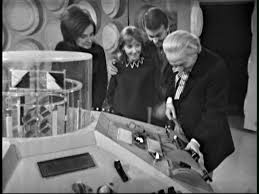
8. Vicki Joins The TARDIS Crew(The Rescue)
The brevity of the way the true introduction of Vicki was played was yet another of the moments that could easily go, and has easily gone underappreciated. It was another instance of mundanity in the immediate interaction between Vicki, the Doctor and Ian and Barbara at its face value-But the implications that it harboured as the first passenger of the time and space vessel since the very inaugural episode of the entire series, the first sense of optimistic recovery in the aftermath of Susan's withdrawal, and the delight that the original occupants of the inter-dimensional ship took in liberating their new companion from the doldrums of the planet Dido as a forbearing dynamic of all of the wonderful escapades they were due to participate in, and their fondness of one another, were what nurtured and magnified the unspoken importance of the scene.
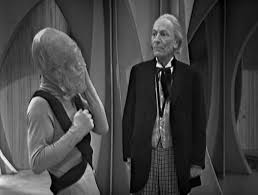
7. Behold, The TARDIS(The Sensorites)
"It all started out as a mild curiosity in the junkyard, and now it's turned out to be quite a great spirit of adventure.", "Now listen to me, both of you. You've taken the lock of my ship and I want it returned immediately.", "I don't make threats. But I do keep promises. And I promise you I shall cause you more trouble than you bargained for...If you don’t return my property!" and "I don't know, my dear. This old ship of mine seems to be an aimless thing. However, we don't worry about it, do we? Do you?"-They were all confirming features of validity evidencing the eternal sustenance of faith and affection the Doctor imbued his beloved TARDIS with.
Even in his almighty authoritative state of pragmatism, he found himself occasionally unable to refrain from the resplendent awe of the machine he had, the exuberant elation he derived from his exploits with it, and his staunch, austere protectiveness over the preservation of its welfare, and his custody of it. They were sporadically disseminated throughout the entirety of the episode featuring the Sensorites, and grounded out the fidelity to the gratification travelling in his mobile home granted him the permission to take in his stride-A relationship that was further explored throughout all of his succeeding incarnation's experiences.
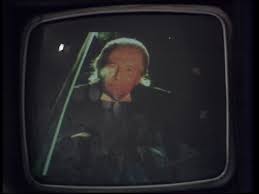
6. Dynamic With His Successors(The Three Doctors)
As the very inaugural form the entity of the Doctor embodied, the First Doctor, by virtue of the sheer, very statistical probability, he was and remains the most likely of the Doctors to encounter one or more of his future beings-And that is precisely what has happened, and did occur for the first time, when the triumvirate of the First, Second and Third Doctors involuntarily converged to unite against the ominous and ubiquitously looming peril the villainous Time Lord Omega threatened to wreak havoc upon his species with. Attempting to drain the power of the almighty and almost omnipotent race possessed and prided themselves upon, Omega was one of the greatest and most fearsome forces the Time Lords reluctantly had to reckon with; But in full exploitative abuse of their authority, they instead decided to simply summon the Doctor to confront the hazardous adversity.
As audacious as their demand was, they were prudent all the same, and realised that merely one incarnation of their most infamous alum would become overwhelmed by the tenacity of the brute they were scheduled to engage with-And united three of them in due course. Each of the trio exhibited the most exaggerated and blatant aspect of their personalities in the beleaguering and confounding experience of suddenly being faced with their own, different faces, and externally combined to form an amalgamated spectacle of wonder. For them, the situation was more distressing(at least initially), and the First Doctor fell back on his inherent pomposity and cynicism in contempt of the disapproval of what he would transform into. "So you're my replacements-A dandy and a clown!"-Was the quote that purported such a resentment, that was played somewhat for levity, and despite the fact that he was younger than his successors in chronology, his older form informed a condescension he chastised himself with.
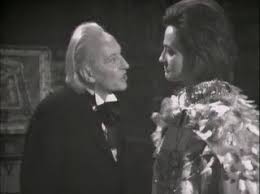
5. Rewriting History(The Aztecs)
One of the most prevalently explored functional features of Doctor Who, and many other science fictional serials, is the prominent consideration pertaining to the viable accountability and potential culpability a wanderer can have in the meddlesome interference that revolves around the progression of time. The protocol of courteous duty and convention comprises of the responsibility to preserve the fixed inevitabilities that are imperative transpirations throughout the tenure of the universe's lifespan. Temptations that could incentivise an individual to tamper can range from the selfish desire of the enhancing augmentation of personal gain, to the altruistic compulsion of improving the general state of the grand scheme of the world and beyond-But any morally virtuous individual would have to stand in the attendance of external audience, whether reluctantly or not.
The mistaken identity of Barbara by the Aztecs, when the TARDIS crew visited their era, lead the ancient civilisation to misappropriate her as a goddess, and when they had resolved to make a sacrifice of one of the members of their society as per standard tradition, she devised a cunning strategy of using her attributed influence to discourage them from committing what was considered an atrocity by her time, instead of an honoured and celebrated customary ceremony. The Doctor, however, deplored this magnanimous intention in precautionary trepidation of the potential repercussive denotations of the curtailment of such a practice, exclaiming "You can't rewrite history. Not one line!" in response to her optimistic justification of "Don't you see? If I could start the destruction of everything that's evil here, then everything that is good would survive when Cortes lands."
It fully exemplified the conflict of the Doctor's loyalties, as he did not want to disrupt the organic nature of the cultural procedure, nor the sensitivity of his friends' convictions and consequent emotional devotion to them. The additional complication of his own contentment residing within the atmosphere of the time, and the dismissal of his own reservations about the abetting of a death added another layer of dubiousness and contemplative distress to the entire situation, and allowed the show to flourish with the credentials of its own complexity.
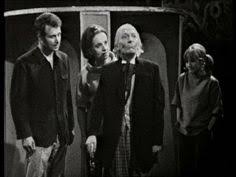
4. Farewell Ian & Barbara(The Chase)
Having recruited Vicki to the consolidated company of the expeditious venturers, and cultivated a mentality of compassionate affection and accommodating facilitation of the upholding of the rights of all life in the universe; The Doctor had come to realise just how far he had been educated to evolve and grow personally into an ineffably benevolent promoter of philanthropy, from the initially malcontented miscreant brimming with egotism and portentousness just recently, when Barbara and Ian decided it was time to depart the TARDIS. They had just defeated the Daleks(yet again), and the teachers had become disillusioned with the perils of traversing time and space, despite the glorious opulence of their escapades.
The sequestration of a time and space shuttle that was a product of the construction of Skaro enabled the possibility for their return to contemporary London, but from the Doctor's perspective, he sentimentally latched onto the two people that had redeemed him after the withdrawal of Susan-That had been a traumatic blow to the welfare of his emotions. He had to resort to tactics of lamentation as a manifestation of protest, as making a plea in the lucidly implicit desperation through a petulantly immature conduct of a rant during the dialogue of exchanges:
Barbara: We're not idiots! We want to go home!
Ian: Yes! Home! I want to sit in a pub and drink a pint of beer again! I want to walk in a park, and watch a cricket match. And above all, I want to belong somewhere, and do something! Instead of this aimless drifting around in space!
Doctor: AIMLESS?! I tried for two years to get you both home!
Ian: Well you haven't been successful, have you?
Doctor: How dare you, young man! HOW DARE YOU, SIR! I didn't invite you into the ship in the first place! You both thrusted yourselves upon me!
Barbara: OH, DOCTOR! STOP IT!
Doctor: Oh, for heaven's sake! I've never heard such nonsense!
Barbara: Look. I know we've thrust ourselves upon you! But we've been through a great deal since then! And all we've been through will remain with us always! It could be the most exciting part of my life. Look, Doctor, we're different people. And now we have a chance to go home. We want to take that chance. Will you help us work that machine?
Doctor: ...No. No! I will not aid and abet suicide!
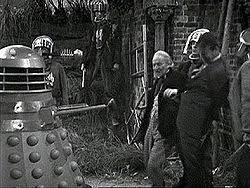
3. Defiance Of The Daleks(The Dalek Invasion Of Earth)
Dalek: We do not release prisoners. We are the masters of the Earth.
Doctor: Not for long.
Dalek: Obey us or die.
Doctor: Die? And just who are you to condemn us to death? [sotto] I think we'd better pit our wits against them and defeat them.
Dalek: Stop! I can hear you! I have heard many similar words from leaders of your different races! All of them were destroyed! I warn you! Resistance is useless!
Doctor: Resistance is useless? Surely you don't expect ALL the people to welcome you with open arms?
Dalek: We have already conquered Earth!
Doctor: Conquered the Earth? You poor, pathetic creatures, don't you realise? Before you attempt to conquer the Earth you will have to destroy ALL living matter!
The dialogue that certified the Doctor as a bonafide hero for all benevolent beings to aspire to emulate, in the perspective of many Whovians. The Doctor had initially been conceived as the emissary conduit for the vicarious experience of the epic wonders of the universe as he purposefully meandered through his wanderings of it, but the inaugural encounter or acrimony with the Daleks inspired him to become more than just that, but a noble protagonist of stubborn defence of the universe, in only his second televised adventure. When the Daleks returned to exact furiously retributive rage upon Earth as per the mandate of their abhorrently ferocious nature, and not necessarily in retaliation to the events that transpired on Skaro, the Doctor fully embraced the philosophy of perseverance.
They sought vengeance and vitriolic damnation of all life that was not Dalek, and so the contumacious defiance to their tyranny and subjugative suppression was once again drawn out of the Doctor. He was not only opposed and in contempt of the audacity and unjustified malice of the Daleks' intent, but seemed genuinely offended and infuriated by it, and so the precedent for the perpetuated ambition of the salvation of the universe was well and truly set at that moment; A foundation that following Doctors took pages from the book of.
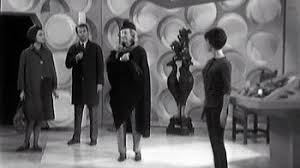
2. Emergence(An Unearthly Child)
The mild curiosity in a junkyard found its origins in the first serial of the show's tenure of endurance within the hearts, minds and souls of all of those enchanted by the product of the BBC. The first serial of the show that captivated the very fibre of the being of the BBC's audiences comprised of the introduction to a peculiar and unorthodox teenage girl that provoked a curious pursuit of the student of a public school back to her unidentified location of residence from two of her teachers-All the way to a mysterious and desolate junkyard within the city of London. Contained within the area was the appearance of a blue police public call phone box, that possessed more than met the eye behind its closed doors. Not only was there a crotchety, old man, but a vast expansive environment of a control room, for the box was not a box at all-It was, in fact, a vessel for the traversal of the passage of time and space.
Not only inside the box was there a control room of an infinite realm of a machine, but there was a matured, but surprisingly animated and lively veteran for a pilot within. And he emerged in the full resplendence of a mordacious, uppity detractor-Seemingly insulted by the offence of the teachers' very presence in his immediate vicinity. He was very averting and reserved, displaying little other than uptightness, so as not to reveal the true intention behind his own occupancy of the area. It was not malicious, but his antagonism toward the humans that stood before him was emitted into the atmosphere with no punches pulled. However, contradictory to all of the less desirable elements of his emergence into the junkyard, there was an irresistible allurement about his persona, and when Susan permitted their access into the TARDIS, the doors were both literally and figuratively opened for the characters and the audience to revel in the ecstasy of experiencing the impending adventures forth into the unknown. It fascinated the spectators, who unwittingly were inevitably going to evolve into proud Whovians, and it was definitive of the innate beguilement of the First Doctor, and his soon to be successors.
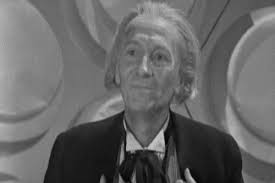
1. Farewell Susan(The Dalek Invasion Of Earth)
This scene is immediately resonant for Whovians for reasons beyond the mere, superficial element of the dynamic of a separation between two loving family members-Of course, there is the blatantly implied emotional gravitas of such a transpiration of events, especially when contextualised with the aftermath of the horrendous events that had preceded it. But the fact that the most regarded aspect of the First Doctor’s legacy of his evolution from a crotchety, cantankerous and irascibly intolerant old man with the supreme intellect that he possessed in spades, and the oblivious ignorance of a lack of etiquette in the art of sensitivity, to almost the complete antithesis of a warm, compassionate and affable figure of dependable paternity-vicariously projected onto his companions-was symbolically consummated in the sacrificial act of dismissing his granddaughter from the confines of the TARDIS in service of the best interests of her future was the feature of consideration and emotional investment.
It had of course been flirted with prior to this moment in the more sentimental previous episodes, but no single instance in Doctor Who until that point had been certified purely and emphatically poignant. The show had begun as an intentionally casual educational program, but it set the precedent almost immediately for being the zealously and intrepidly ambitious show it has become-Not remotely content with being simply that. This moment ensured the evolution into a monolith of versatility and virtue, and the broad expanse of the indelible impact that Doctor Who would proceed to dispel would only exponentially increase from then onward.
"You are still my grandchild and always will be. But now, you're a woman too. I want you to belong somewhere, to have roots of your own. With David, you will be able to find those roots and live normally like any woman should do. Believe me, my dear, your future lies with David and not with a silly old buffer like me. One day, I shall come back. Yes, I shall come back. Until then, there must be no regrets, no tears, no anxieties. Just go forward in all your beliefs and prove to me that I am not mistaken in mine. Goodbye, Susan. Goodbye, my dear."

